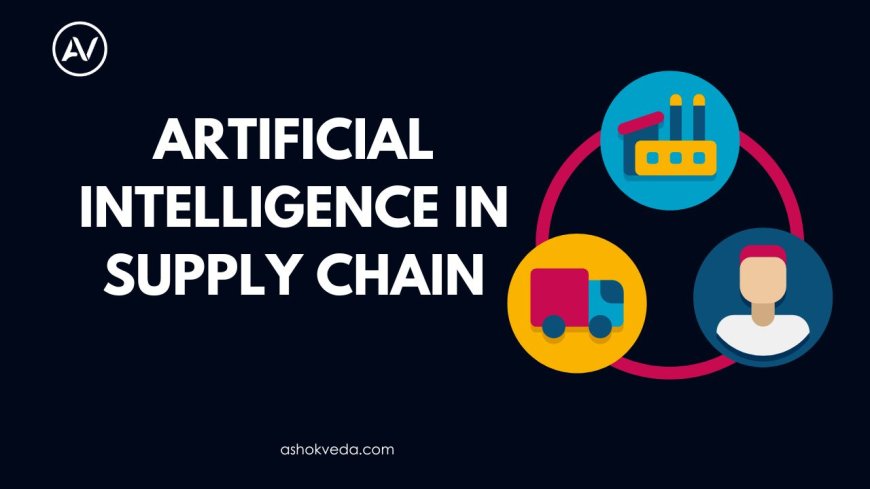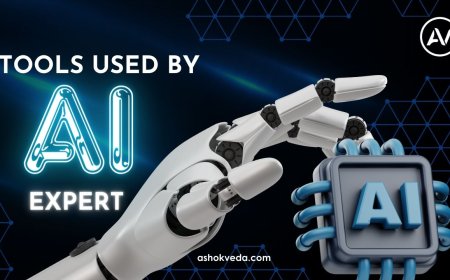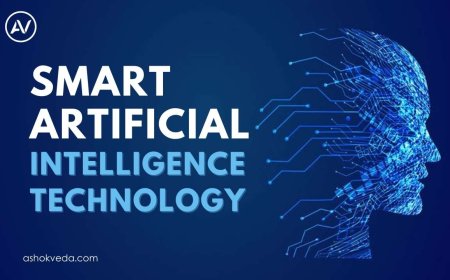The basics of artificial intelligence in supply chain
Learn how artificial intelligence enhances efficiency and decision-making in supply chain management.

Hey there! look at The Basics of Artificial Intelligence in supply chain management. Whether you're a business owner, a supply chain manager, or simply interested about how technology is changing the way items go across the world, We'll go over how Artificial Intelligence (AI) helps make supply chains smarter, the benefits it provides, and even some of the difficulties that can happen along the way.
The Basics of Artificial Intelligence in supply chain management include using smart technology to manage the many moving aspects of supply chains. AI is a game changer in planning which products customers will want next month and ensuring that the proper items are always in stock.
Understanding the Basics of Artificial Intelligence in Supply Chain
1. What is Artificial Intelligence in Supply Chain?
Artificial intelligence in supply chain refers to the use of smart technologies that can learn and adapt to optimize supply chain operations. This includes everything from predicting demand to managing inventory, to ensuring the best routes for delivery. Think of it as adding a layer of intelligence to every step of the supply chain, making it more efficient and responsive.
2. How Does It Work?
At its core, artificial intelligence in the supply chain relies on data. Lots of it. These systems analyze past and present data to make informed decisions about future actions. For example, AI can forecast future demand based on historical sales data, current market trends, and even weather patterns. This helps businesses maintain optimal inventory levels, reducing both excess stock and stockouts.
Basic Components of AI in Supply Chain
To understand the basic principles of artificial intelligence in supply chain, AI is similar to a toolbox full of many tools, each of which plays an important part in supply chain optimization.
Machine learning is the core of artificial intelligence. It's all about training computers to learn from data and make predictions or conclusions without being explicitly programmed. In supply chain management, ML aids in activities such as demand forecasting and proactive maintenance.
-
Demand Estimating: ML analyzes historical sales data and current industry trends to forecast future demand. This means businesses can plan more effectively, retaining just enough stock to fulfill client demand without overstocking.
-
Predictive repair: By monitoring and analyzing data, Machine Learning can predict when machinery will fail, allowing for prompt repair and lowering downtime.
2. Robotic Process Automation (RPA)
Robotic Process Automation is similar to having a digital workforce that does repetitive activities. RPA is ideal for simplifying procedures that do not require human decision-making but demand accuracy and speed.
-
Order Processing: RPA can automatically process client orders, minimizing errors and speeding the fulfillment process.
-
Invoice Management: It can handle invoicing, matching purchase orders to deliveries, and ensuring payment processing runs properly.
3. Natural language processing (NLP)
Natural Language Processing is the artificial intelligence component that allows computers to interpret and respond to human language. NLP can help supply chains analyze enormous amounts of text data and improve communication.
-
Analyzing client comments: NLP assists organizations in comprehending client reviews and comments, enabling better service and product enhancements.
-
Managing Supplier Communications: It can simplify communication with suppliers by automating responses to common questions and efficiently arranging information.
4. Computer Vision
Computer vision allows machines to understand and comprehend visual information from their surroundings. In supply chains, this technology is utilized for visual inspection and analysis.
-
Quality Control: Computer Vision systems can scan products for flaws, ensuring excellent quality before they reach customers.
-
Automated Sorting: Automated sorting is used in warehouses for swiftly and correctly sorting and organizing things, minimizing the need for manual labor.
Key Applications of AI in the Supply Chain
The Basic concepts of artificial intelligence in supply chain, into how they're used in everyday situations.
1. Demand Prediction.
AI analyzes data to forecast which products will be in demand in the future. This enables firms to plan more effectively, eliminating waste and ensuring they always have the proper items accessible.
-
Better planning improves inventory management and customer happiness. It also reduces the costs associated with overstocking and stockouts.
2. Inventory Management.
Keeping a sufficient quantity of inventory is essential for every organization. AI optimizes inventory levels by assessing data on sales trends, seasonality, and market circumstances.
-
Benefits: This lowers costs, reduces the danger of shortages, and assures that capital is not locked up in excess inventory.
3. Supplier Selection and Management
Choosing and handling suppliers is essential to the supply chain. AI evaluates suppliers using a variety of factors that help in the effective management of connections.
-
Benefits of employing AI for supplier management include increased supplier reliability, improved negotiation outcomes, and risk mitigation.
4. Logistics and Transportation Optimization
AI can plan the most efficient delivery paths, taking into account traffic, weather, and the cost of fuel. This ensures that things are delivered on schedule and for the lowest possible cost.
-
AI-driven logistics has several advantages, including shorter delivery times, lower transportation costs, and more customer satisfaction.
Challenges and Factors
While the basics of artificial intelligence in the supply chain provide various benefits, there are some problems and factors to keep in mind.
1. Data quality and availability.
AI relies greatly on data. To function properly, AI systems require access to high-quality, clean data. However, collecting and organizing such data can be difficult.
-
Importance: Without sufficient information, AI systems can produce incorrect results, resulting in poor decision-making.
-
Challenges: Many firms suffer with data silos, inconsistent data formats, and the sheer amount of data that must be processed.
2. Integration with existing systems.
Integrating artificial intelligence into existing supply chain systems might be challenging. Older technologies may be compatible with new AI technology, creating integration issues.
-
Compatibility: Ensuring that AI systems integrate easily with existing systems is critical for efficient operations
-
Solutions: Businesses may need to invest in middleware or upgrade their existing systems to support integration.
3. Cost and ROI.
Implementing AI technologies requires outstanding expenditure. Businesses must carefully consider the costs and potential return on investment (ROI).
-
Initial Investment: The costs of AI technology, including hardware, software, and training, can be significant.
-
ROI Assessment: To secure a favorable return, the benefits of AI must be balanced against the expenses.
4. Skills and Training
Successfully managing AI systems requires specialized skills. Businesses need to invest in training their workforce or hiring skilled personnel.
-
Need for Skills: AI systems are complex, and managing them requires technical expertise.
-
Training Considerations: Ongoing training and development are crucial to keep up with technological advancements.
Future Trends in AI and Supply Chain
As we look ahead, the basics of artificial intelligence in the supply chain will change, presenting new opportunities and problems.
1. Advancements in AI Technology
Emerging AI technologies will provide new capabilities, making supply networks more intelligent and adaptable.
Impact: These innovations will improve decision-making, increase efficiency, and create new opportunities for creativity.
2. Increased automation and autonomy.
AI will promote more automation throughout supply chains, increasing autonomy and minimizing the need for manual intervention.
Role: Autonomous supply networks can run with little human intervention, increasing efficiency and accuracy.
3. Environment and AI
AI will play an important part in encouraging sustainable practices throughout supply chains, from waste reduction to resource optimization.
Contribution: Artificial intelligence can assist firms in meeting their sustainability goals by increasing operational efficiency and minimizing environmental impact.
4. Collaborative AI systems
Artificial intelligence (AI) technologies that improve human decision-making will become more common, encouraging greater collaboration between technology and people.
Rise: These systems will assist humans in making complex judgments by combining the capabilities of both human and artificial intelligence.
As technology advances, we should expect more new applications and improvements in this industry. Implementing the basics of artificial intelligence in supply chain management today sets firms for future success by increasing agility, resilience, and customer focus.





































